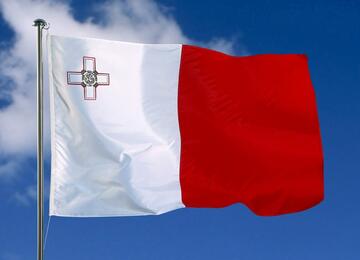
Credits: Nathan Hughes Hamilton via flirk (CC BY 2.0 )
16 March 2023
Dear Prime Minister Robert Abela,
The undersigned international press freedom and journalists organisations are today writing to urge your government to follow up on the recent public consultation into media law reforms by implementing changes which will significantly strengthen the draft legislation. As the monthly memorial service for the assassination of Daphne Caruana Galizia is held in central Valletta today, we also renew our call for these reforms to fully implement the recommendations of the independent inquiry into her murder.
As our organisations have previously outlined , the current draft bills for improving protection of the media presented in September 2022 fail to create the systemic reforms required to foster an enabling environment for free and independent journalism. We therefore welcome the government’s belated decision, following criticism, to freeze parliamentary debate on the three bills to give time for the Committee of Experts to carry out a consultative process.
To ensure the public consultation is not simply a box-ticking exercise, we now urge your government to properly consider and implement the proposals for strengthening the media bills developed during the consultation. Amendments should also implement the recommendations of the government-appointed Committee of Experts and other key domestic and international stakeholders. We also call on your administration to prove a clear timeline for the next steps of the legislative process and to ensure effective transparency regarding that process. This should involve more regular press briefings, substantive responses to media inquiries, publication of reports of meetings about the law, and scheduled opportunities for international civil society organisations to contribute to the reform process.
Any moves to improve the draft legislation must be grounded in the recommendations set out in the report of the landmark 2021 Public Inquiry report. This should include the constitutional recognition of journalism as the fourth pillar of democracy and introduce effective new laws to address impunity, corruption and the abuse of power. Such changes must at the very least meet international standards on the protection and safety of journalists and freedom of the media, including the strengthening of the government’s watered-down anti-SLAPP legislation.
These reforms should also follow the recommendations of two legal analyses conducted by the OSCE Representative on Freedom of the Media and the recommendations by the European Commission in its 2022 Rule of Law Country Chapter on Malta , as well as from the European Parliament’s Democracy, Rule of Law and Fundamental Rights Monitoring Group .
As the Public Inquiry identified, the Maltese state bears responsibility for allowing the toxic conditions in which the murder of a journalist took place to fester. We believe your government bears fundamental responsibility for ensuring that systemic reforms are carried out to ensure such a heinous killing is never committed again. We urge you to, at a minimum, implement the proposals put forward during the public consultation and follow the advice of the Committee of Experts in the next stages of the legislative process. Daphne Caruana Galizia and her family deserve no less.
Our international press freedom and journalists organisations will continue to closely monitor this situation and remain at your disposal for a meeting to share our combined expert opinions on these matters.
Signed:
ARTICLE 19 Europe
Committee to Protect Journalists (CPJ)
European Centre for Press and Media Freedom (ECPMF)
European Federation of Journalists (EFJ)
Free Press Unlimited (FPU)
International Press Institute (IPI)
OBC Transeuropa (OBCT)
Reporters Without Borders (RSF)
Tags: Media Law Media freedom Safety of journalists
This content is part of the Media Freedom Rapid Response (MFRR), a Europe-wide mechanism which tracks, monitors and responds to violations of press and media freedom in EU Member States and Candidate Countries. The project is co-funded by the European Commission.


